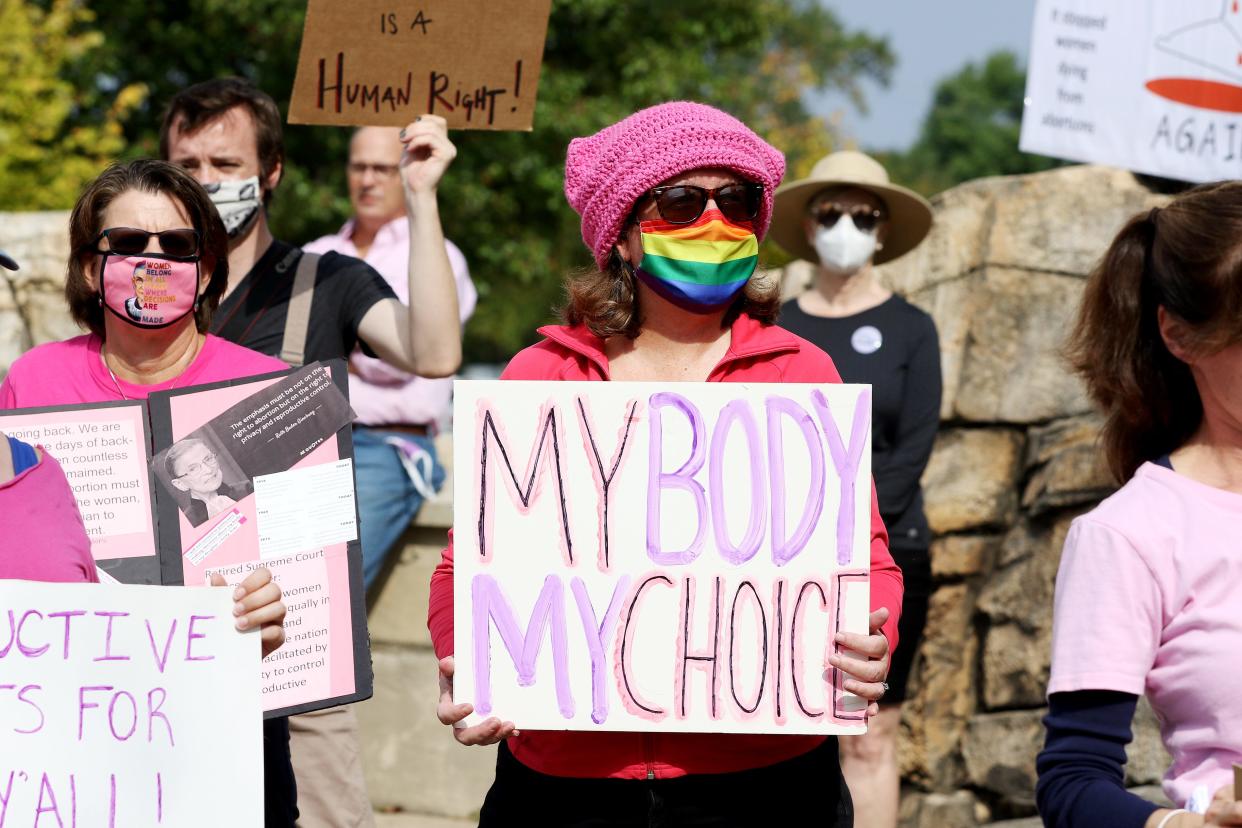Opinion: Bill could eliminate abortion access overnight

We’re at a crisis point for abortion access in Ohio and across the country. Just one day after the U.S. Supreme Court heard oral arguments in a case that could end the constitutional right to abortion, anti-abortion lawmakers in Ohio held a hearing on legislation (SB 157) that would wipe out Southwest Ohio abortion providers, and leave thousands without access to basic health care. While this devastating bill has already passed the state Senate, state House lawmakers must stand with patients and vote against this harmful legislation when they meet later this week.
The bill’s sole purpose is to stigmatize essential health care, criminalize doctors and eliminate abortion access. The law that SB 157 purports to create already exists in our state. But lawmakers are using it as a trojan horse to hide the true, insidious intent of the bill: A last-minute, targeted restriction on abortion providers (TRAP law), that would allow the Department of Health to revoke abortion licenses, shutting down health centers and fully eliminating abortion access in Southwest Ohio.
The bill’s intent is to sever the longstanding relationships between private and public health care institutions that are the bedrock of an equitable, comprehensive health care system. Specifically, the bill would strip abortion providers and facilities of their license if the health care providers who have contracted with abortion-providing health centers to provide support in case of emergencies (a state legal requirement, even though such emergencies are exceedingly rare and abortion providers are properly trained to triage any that do arise) are affiliated in any way with public institutions. This would include all public hospitals, universities, or teaching programs affiliated with public institutions.
No medical need exists for these provider contracts to begin with, though anti-abortion lawmakers continue to justify the requirement under the guise of protecting patients’ health. TRAP law requirements for abortion facilities are medically unnecessary and put a tremendous burden on abortion providers in Ohio – which is their point. A first-trimester abortion is one of the safest medical procedures, with a less than 0.05% chance of major complications that might need hospital care. In fact, the risk of death associated with childbirth is approximately 14 times higher than that of abortion.
With SB 157, anti-abortion lawmakers aim to make it so difficult to establish these legally required contractual arrangements that it will become virtually impossible for certain abortion providers – including Planned Parenthood Southwest Ohio Region – to meet the arbitrary proposed standards. By disallowing physicians with any public institution affiliation from contracting with abortion providers to secure required clinic licensure, legislators will deliberately and cruelly eliminate licensed abortion providers in an entire region of the state.
If anti-abortion lawmakers were genuinely concerned for patient safety, legislators would make it easier for qualified, experienced physicians to partner with abortion providers, not harder.
Should this bill pass, the already limited number of abortion providers in Ohio able to maintain licenses to serve patients will be reduced even further. This would be especially harmful for our Black and brown communities who already struggle to access basic health care, including abortion, at Ohio’s public health institutions because of racist policies and systemic inequities. Selectively eliminating ties between certain public and private health care providers only exacerbates these existing health care inequities and would have lasting effects on our health system and patients for years to come.
This legislation is only the latest in a series of attempts to regulate abortion facilities out of existence in Ohio, through medically unnecessary laws targeted only at abortion providers. As we fight SB 157, we’re also working to stop a bill that would trigger a ban on abortion should the Supreme Court overturn Roe, and a bill with a Texas-style private enforcement mechanism that would put a bounty on the head of anyone who helps someone obtain an abortion in Ohio.
Planned Parenthood of Greater Ohio clinics and other independent clinics provide comprehensive sexual and reproductive health care and education to Ohioans who may otherwise lack access. Anti-abortion legislators aim to strip abortion providers and health centers of support or force closure entirely, endangering the health of thousands of Ohio residents and their families who rely on these health centers and threatening the lives of their pregnant constituents. It’s more important than ever that we use our collective voice and urge the Ohio Legislature to protect our constitutional right to abortion: you can do so here.
Planned Parenthood of Greater Ohio and Planned Parenthood Southwest Ohio Region will always fight for our patients to ensure that everyone gets the care they need and deserve – no matter what. Ohio legislators should do the same and vote against SB 157.
Lauren Blauvelt-Copelin is vice president of government affairs and public advocacy for Planned Parenthood Advocates of Ohio.

This article originally appeared on Cincinnati Enquirer: Opinion: Bill could eliminate abortion access overnight

